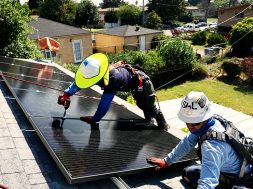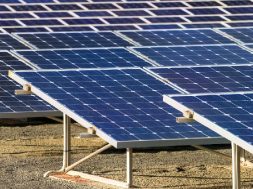
Engie’s Acquisition of EV-Box Adds to Its Growing Ecosystem of Distributed Energy Offerings
EV charging-station developer EV-Box is looking to expand its global footprint after being bought by international energy company Engie. EV-Box, native to the Netherlands, already provides 26 countries and 980 cities with more than 48,000 charging stations.
EV-Box’s CEO Kristof Vereenooghe told GTM that his company would become a global player in the charger market with Engie’s help.
“In the next 10 to 20 years, as costs come down, performance improves and vehicle choice widens, e-mobility will inevitably become one of the fastest-growing industries worldwide,” he said. “But electric vehicles are only one part of a bigger ecosystem characterized by Engie — a decentralized, decarbonized and digital energy space.”
Commenting on the acquisition, Engie said: “Combining Engie’s global presence and energy capabilities with EV-Box’s leading technology and thought leadership in the electric vehicle charging market, Engie will be in a unique position to offer customers in all segments, across the globe, innovative, attractive and comprehensive electric vehicle charging and related energy services.”
That ecosystem is one that Engie and its rivals have been steadily adding to in the last few years. To date, though, utilities have focused on investment in distributed energy resource (DER) companies in the commercial and industrial sectors. Now it seems players such as Centrica, RWE, Exelon, E.ON and Engie are setting their sights on the domestic sector. And the EV-Box acquisition could have an important part to play.
According to GTM Research analyst Andrew Mulherkar, “Engie is moving into the residential sector after a solid play for the commercial space.”
Mulherkar says other companies purchased in total or in part by Engie include OpTerra, which focuses on lighting, HVAC, controls, solar and multi-measure projects, and Ecova, which offers a software platform for resource management coupled with 24/7 monitoring services.
Engie has also invested in Serviz, which provides a software platform for home repair. According to an Engie press release: “Homeowners use Serviz to instantly schedule everything from a simple handyman repair to installation of a new heating/AC system. Connecting Engie’s building and energy services expertise with the simplicity and scalability of Serviz’s on-demand platform will open a range of innovative service opportunities.”
Then there is Tendril, an energy services management firm. Before entering a partnership with Engie, Tendril already provided analytics and personalization services that served millions of customers in the U.S. With Engie’s backing it has been rolled out to Europe, too. With it, stated Engie: “We will deliver tailored products and services that establish a truly personal and engaging energy experience.”
Connecting more intimately with customers appears to be a key goal of these acquisitions. Whether they want energy efficiency or planning services, Engie could be in position to link its acquisitions and partners together to engage homeowners more efficiently.
Although Vereenooghe acknowledges that EV-Box has a part to play in that residential gambit, he emphasized that EV-Box’s ambitions and scope are not limited to that area. EV-Box will find business in any markets “where EV charging infrastructure is required or will need to be met, such as workplaces, commercial [settings], and public municipalities,” he said.
Nevertheless, Vereenooghe sees a variety of potential synergies for his company and other Engie acquisitions, describing EV-Box as being a “perfect fit” with a range of services now available from Engie via partnerships and acquisitions.
As an example, he suggested EV-Box could add value to OpTerra by incorporating EV charging to its current offering of energy efficiency, solar and energy storage.
Other diversification-minded utilities appear to be headed in a similar direction. Engie rival E.ON has already entered the EV charging arena with the purchase of Danish company Better Place in 2013.
”These investments are relatively small, but they getting bigger and bigger as DERs ramp up,” said Mulherkar.
Meanwhile, EV-Box is continuing to innovate post-purchase with a new modular home-charging station the company describes as “future-proof.”
Vereenooghe said the new residential-focused Elvi system would “add benefits to Engie’s retail business and grid services.”















